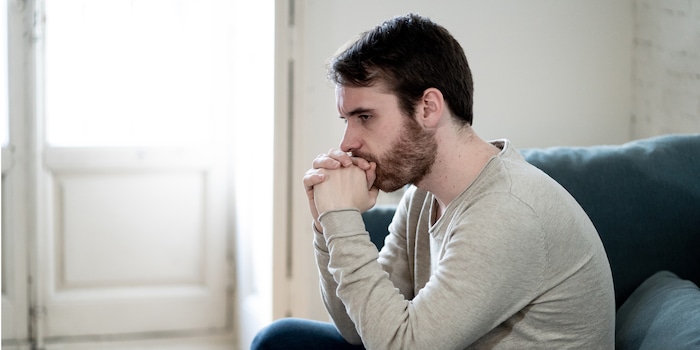
The younger, the lonelier
Young men feel lonelier more often than older women. This is the result of a worldwide study with around 46,000 participants.
Young people and men report a higher level of loneliness than older people and women, according to a global study. At least that is what emerges from the responses of more than 46,000 participants in the BBC Loneliness Experiment, the initial results of which have now been published in the magazine "Personality and Individual Differences".
Loneliness is defined as the discrepancy between actual and desired social relationships. Meaning: You would like to talk to others on the phone, go out, dance and so on, but have no one to pass the time with. It has been proven that feeling alone can affect your mood and health. Accordingly, researchers are interested in finding out what contributes to this feeling - because if the causes are known, then at best something can be done about it.
The current study now shows that a young man living in an individualistic society - the UK or the USA, for example - is more likely to feel lonely than an older woman in a collectivist society such as China or Brazil.
The results summarised:
- Younger people were more likely to say they were lonely than middle-aged people.
- Middle-aged people, in turn, reported more loneliness than older people.
- Men were more likely to feel lonely than women.
- People in individualistic countries reported more loneliness than those in collectivist states.
Old equals lonely?
The results are contrary to what many might expect, says study co-author Manuela Barreto from the University of Exeter in a press release. "Loneliness is not a dilemma that only applies to older people." The feeling could be due to the different expectations that younger and older people have, she continues. "The age pattern seems to persist across many countries and cultures."
The team behind the BBC experiment set out to investigate how experiences of loneliness differ by culture, age and gender and to find out whether there is a link between the individual factors. Using this data, the authors analysed the statements of 46,054 participants aged between 16 and 99. The respondents live in 237 countries and territories as well as on various islands. According to the researchers, they represent the entire spectrum of individualism-collectivism cultures as defined by Hofstede in 1997.
Spectrum of science
We are partners of Spektrum der Wissenschaft and would like to make well-founded information more accessible to you. Follow Spektrum der Wissenschaft if you like the articles.
[[small:]]
Experts from science and research report on the latest findings in their fields – competent, authentic and comprehensible.